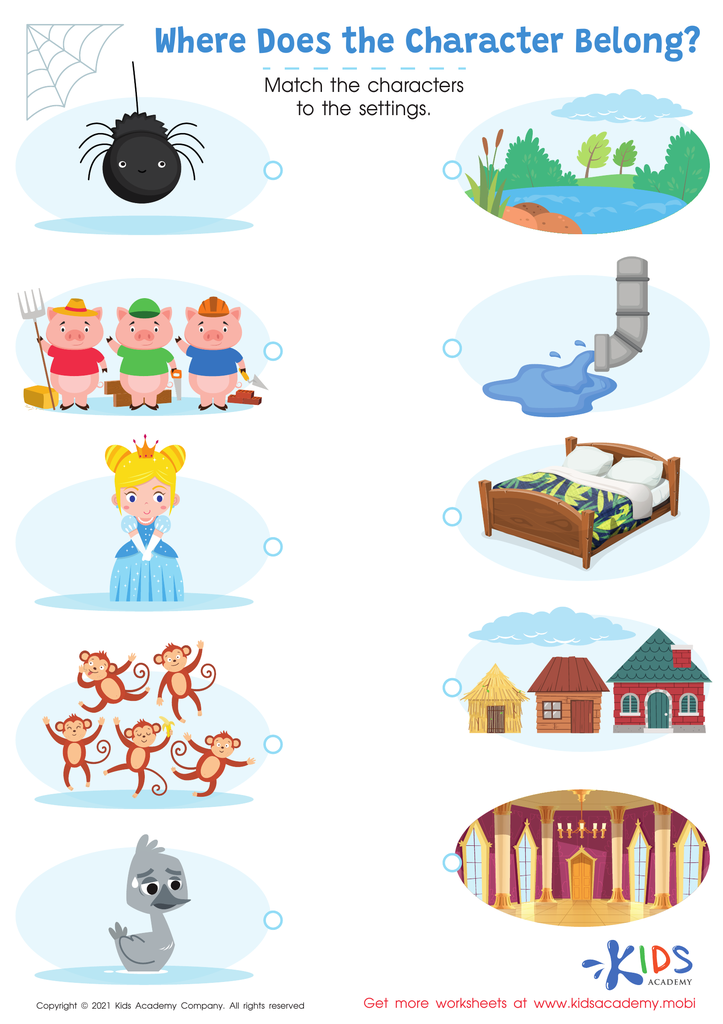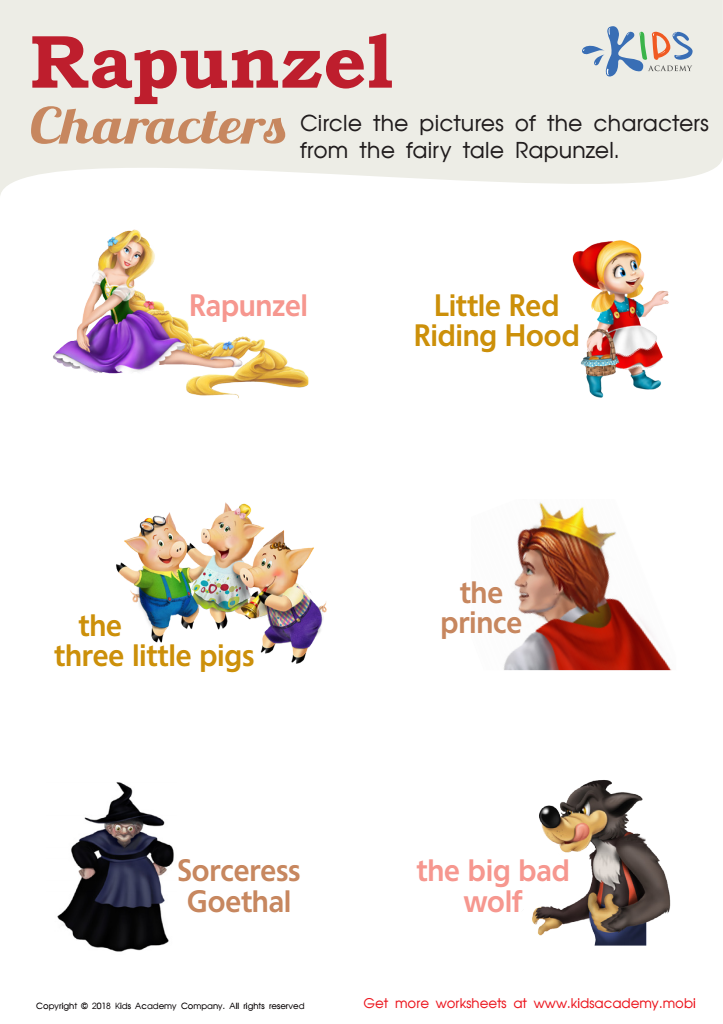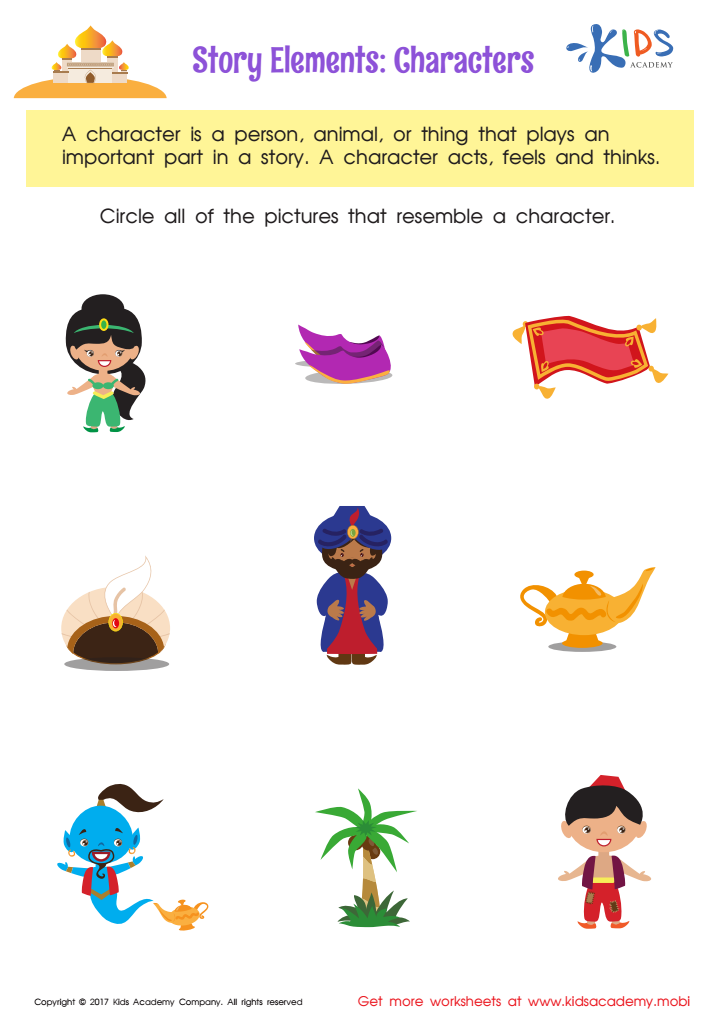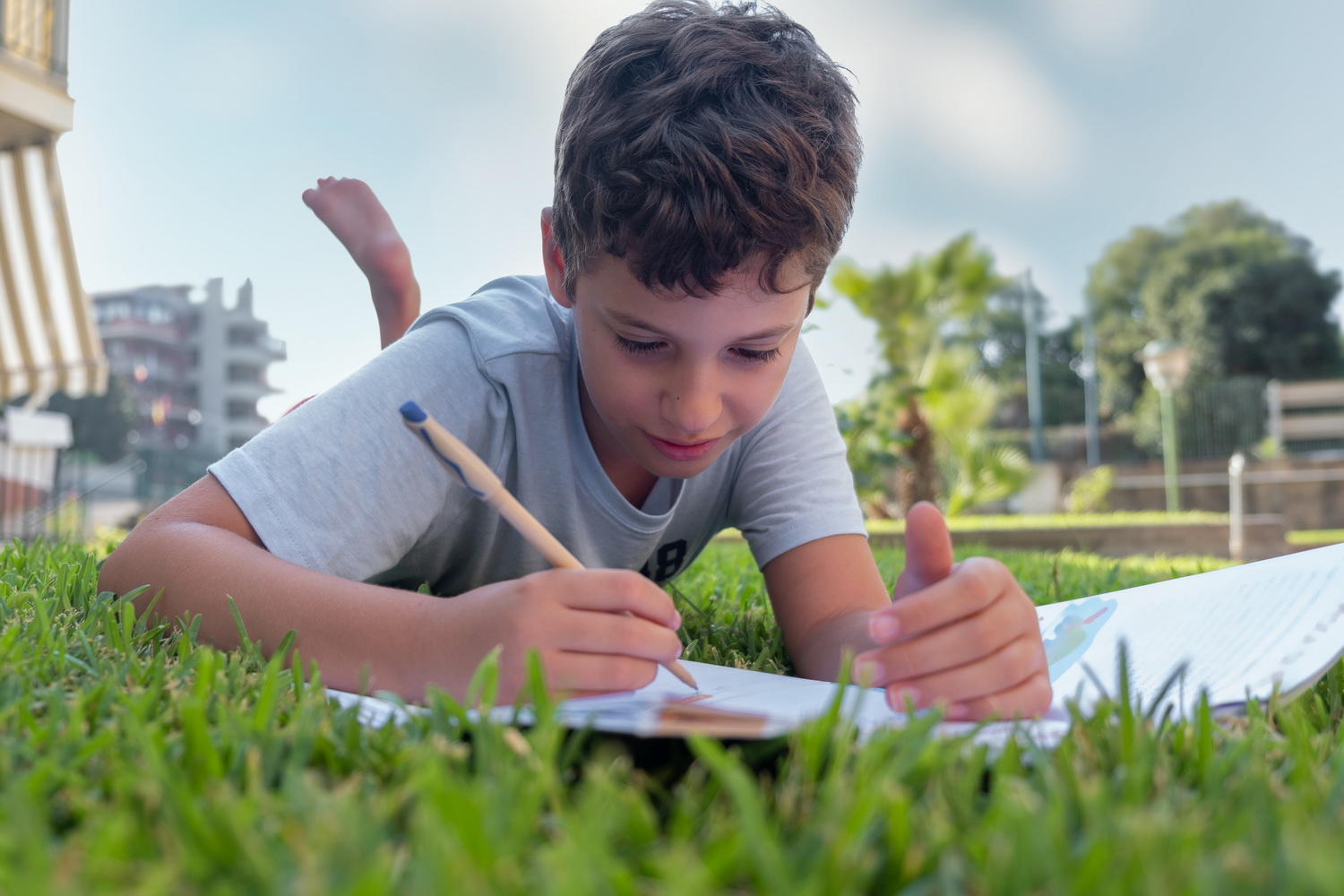Character recognition Reading Fiction Worksheets for Ages 5-6
3 filtered results
-
From - To
Enhance your child's reading journey with our Character Recognition Reading Fiction Worksheets designed for ages 5-6! These interactive worksheets engage young learners through exciting stories, helping them identify and understand characters in fiction. Each activity promotes literacy skills while fostering imagination and critical thinking. Ideal for parents and educators, our printable resources ensure children develop essential reading comprehension abilities at an early age. Explore various fun-filled exercises that challenge students to recognize character traits and roles, setting a strong foundation for future reading success. Dive into engaging narratives today and watch your child's confidence soar as they discover the world of fiction!


Where Does the Character Belong? Worksheet


Rapunzel Characters Worksheet


Story Elements Printable
Character recognition in reading fiction is a fundamental skill for children aged 5-6, and both parents and teachers should prioritize it for various reasons. First, character recognition enhances literacy development, enabling children to identify and understand letters and words more effectively. This foundation helps them become confident readers, which is crucial during these early learning years.
Secondly, when children engage with fictional characters, they develop empathy and comprehension skills. By relating to different characters’ emotions and experiences, they learn to understand diverse perspectives, foster creativity, and enhance critical thinking abilities. These skills also promote social interactions and improve communication, as children discuss plots and characters with peers and adults.
Additionally, recognizing characters helps to motivate children. When they can identify their favorite characters, they are more likely to engage with the text and develop a lifelong love for reading. This can significantly influence their academic trajectory and personal growth.
Inclusion of characters from diverse backgrounds also lays the groundwork for inclusivity and cultural awareness. By caring about character recognition in fiction, parents and teachers support children’s holistic development, equipping them with the skills to navigate both literature and life’s complexities with empathy, creativity, and confidence.

 Assign to My Students
Assign to My Students






.jpg)













